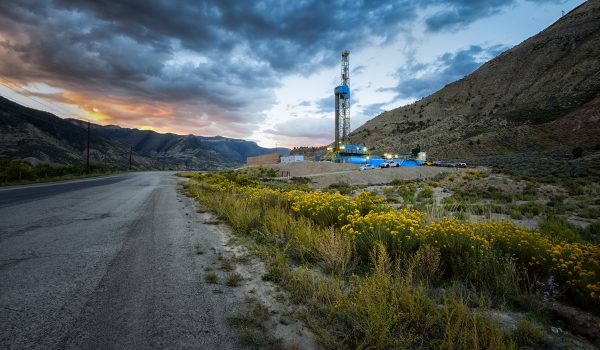On February 14, 2018, in Richard Baatz, et al. v. Columbia Gas Transmission, LLC, No. 1:14-cv-505, 2018 WL 889209 (N.D. Ohio, February 14, 2018), the United States District Court for the Northern District of Ohio, Eastern Division, dismissed the Plaintiffs’ claims that Columbia Gas’s use of an underground storage field in the Clinton Sandstone formation was a trespass or, alternatively, that such use constituted unjust enrichment. A full copy of the opinion can be found here. Columbia Gas, including its predecessor, had been utilizing the 10,000-acre gas storage field in Medina County since 1959 pursuant to the 1958 certificate from the Federal Power Commission. Baatz at *1. This directive not only permitted Columbia Gas to operate the Storage Field, but required it. Id. In 1987, the Federal Energy Regulatory Commission issued to Columbia Gas a certificate for the continued operation of the Storage Field for public convenience and necessity. Baatz at *3. The Plaintiffs acquired the property in 1991, but sought damages beginning from 1959. Baatz at *1, *4. Columbia Gas did not seek gas storage easements under the Plaintiffs’ property until 2014. Baatz at *1.
In dismissing the trespass claim, the Court examined and relied upon Chance v. B.P. Chemicals, Inc., 77 Ohio St.3d 17 (1996). Chance dealt with whether the injection of hazardous waste and its subsequent migration onto land constituted a trespass. Premised upon the acknowledgment that modern property rights are not absolute (i.e. a landowner does not have absolute ownership from the surface to the center of the earth), the Chance Court required that there be actual interference with the owner’s reasonable and foreseeable use of the subsurface. Baatz at *6. Likewise, the Chance Court required proof of actual physical damage to the property. Id. Applied here, the Court held that: (1) plaintiffs have never used the Clinton sandstone formation and had no plans to, and (2) the plaintiffs provided no proof of actual damage. Baatz at *6-7. This, combined with the 1958 certificate that left Columbia’s predecessor without a choice in the matter, meant Columbia Gas could not be liable for trespass. Id.
Next, the Court examined the Plaintiffs’ claim that Columbia Gas was unjustly enriched by its use of the Storage Field from 1959 to present. This claim was mostly rejected because the Plaintiffs, who acquired the property in 1990, were not the ones that conferred the benefit on Columbia Gas. Baatz at *10. That is, because the Plaintiffs did not own the property until 1990, they did not have standing until this time. Cutting this down further, the Court held that an unjust enrichment claim would be subject to the six-year statute of limitations in R.C. 2305.07. Thus, at most the Plaintiffs could recover for the six years prior to the initiation of the action. Baatz at *13. However, because a separate action for eminent domain was pending, the Court held that mechanism would be the sole determiner of Plaintiffs’ compensation. Moreover, the Court provided a mechanism for the Plaintiffs to receive prejudgment interest for the six years prior to the filing of this action, as the values determined by the commissioners in the eminent domain action did not account for this time-value of the funds. Id.
Lastly was the Plaintiffs’ punitive damages claim. In rejecting this claim, the Court referenced the long-standing rule that punitive damages are only available for intentional torts. Baatz at *14. Here, because the Plaintiffs could not prove their trespass claim and an unjust enrichment claim sounds in contract, there was no basis for punitive damages. Id.
As a trial-level decision, Baatz is not considered binding precedent. Despite this, the Court’s detailed analysis is useful guidance for gas utilities in similar circumstances.
For more information, please contact Chris Rogers or any other member of Frost Brown Todd’s Energy and Natural Resources Industry Team.

